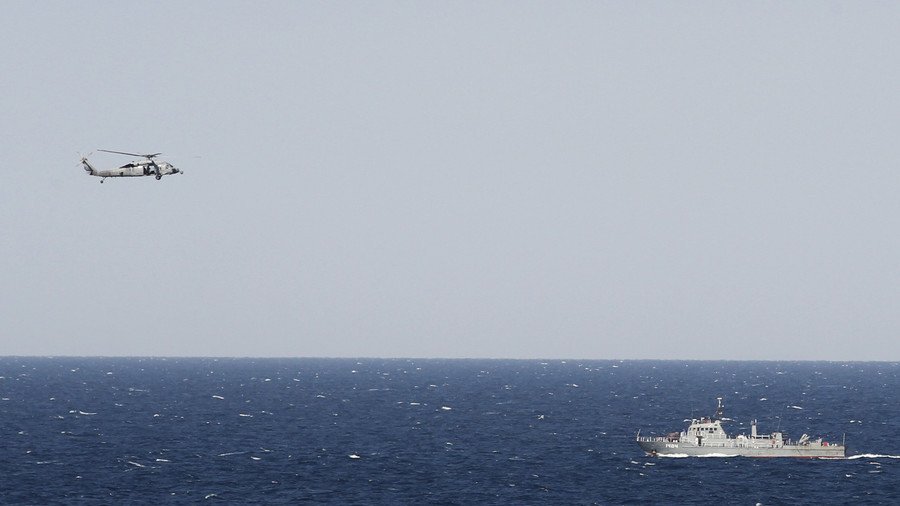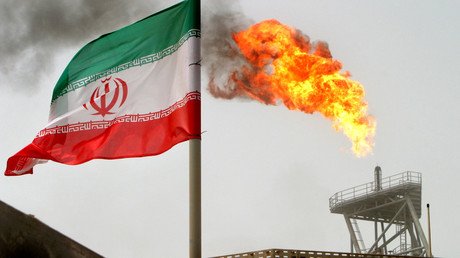Get ready for $250 oil if Iran blocks key shipment route in Middle East, analysts tell RT

Tehran is threatening to block the Strait of Hormuz, a crucial artery for oil shipments from the Middle East, if Iranian exports are hampered. This will result in a huge loss of global crude supply and soaring prices.
Most of the crude exported from Saudi Arabia, Iran, the United Arab Emirates, Kuwait, and Iraq passes through the Strait of Hormuz. It is also the route for nearly all the liquefied natural gas (LNG) shipments from the world’s largest exporter, Qatar.
On Thursday, the head of Iran's Revolutionary Guards said the Strait Of Hormuz will be “for all or for no one,” according to Tasnim News agency. The US Fifth Fleet, based in Bahrain, is dedicated to protecting commercial ships in the area.
“The declared nominal throughput capacity of the Strait of Hormuz is about 14 oil tankers per day, or 17 million barrels per day, or about half of the world’s daily crude oil exports. If exports through it stop, the law of supply and demand would double oil prices to $160 per barrel,” Vladimir Rojankovski, expert at the International Financial Center in Moscow, told RT.
The analyst added that if the Strait is blocked for one or two months, oil traders could panic and buy out all available crude futures, sending prices to $250 per barrel. However, Rojankovski expressed doubt that Iran would do that since the area is highly militarized.
Artem Avinov, leading analyst with TeleTrade, also predicts that oil prices could jump to $250 per barrel if the Strait of Hormuz is blocked by Iran. But he also notes that such a scenario is highly improbable. “I am skeptical about the possibility of the Islamic Revolutionary Guard Corps to cut off oil supplies through the Strait of Hormuz for several days or weeks. Even if Iran really acts, we are likely to see a quick economic or military retaliation, which will lead to the lifting of restrictions,” he told RT.
Another RT guest, Mikhail Mashchenko, who is an analyst at investors’ social network eToro, doesn’t believe crude will skyrocket even if a blockade takes place, since Brent never topped $150 per barrel.
He adds that US President Donald Trump’s rhetoric is propping up oil prices despite his wish to lower them. “If Trump didn’t try isolate Tehran so actively, investors would not have been buying oil so massively because of fears of a deficit. The fate of the oil market depends on the further actions of the top producers: How much the export from the US will decrease, and how much Saudi Arabia and Russia, which have a lot of unused capacities, will increase production,” he said.
For more stories on economy & finance visit RT's business section

















